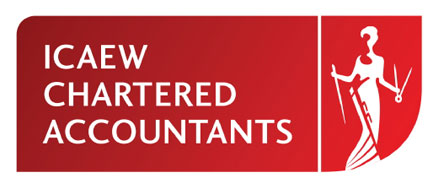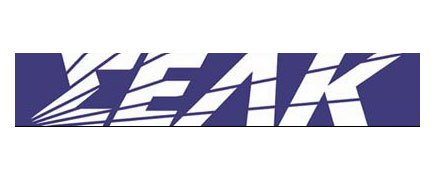Greek Restructuring Delay Helps Banks as Risks Shift
March 19,2012
Delaying Greece’s debt restructuring by more than a year reduced banks’ potential losses as firms trimmed their holdings and most of the risk shifted to European taxpayers.
When Greece was first rescued by the European Union and the International Monetary Fund in May 2010, lenders in other EU nations held $68 billion of its sovereign debt, according to theBank for International Settlements. If Greece had defaulted, banks would have lost $51 billion at a 25 percent recovery rate.
Banks’ holdings of Greek bonds fell by more than half to about $31 billion over the next 15 months, according to BIS, cutting creditors’ losses at last week’s swap by at least 45 percent. Lenders are protected against further losses thanks to sweeteners from the EU to encourage the exchange. Meanwhile, Greece’s debt remains almost unchanged and the risk of future default is now mostly borne by the public. The same playbook is being used with Portugal and Ireland.
“This is a horrible deal for the EU taxpayer,” said Raoul Ruparel, chief economist at Open Europe, a London-based research group. “The longer we wait for these restructurings, the worse the deal gets for the public. There’s an ongoing risk transfer from the banks to the taxpayers.”
New Borrowing
On the face of it, the swap chopped 137 billion euros ($179 billion) from Greece’s 368 billion-euro debt burden. The actual reduction is less than half of that because the country has to borrow from the EU and the IMF to provide new debt to private creditors and to recapitalize banks and pension funds that can’t handle losses from the swap.
The new borrowing — in effect, replacing private with public debt — will amount to 78 billion euros, according to the EU, leaving the actual relief from the swap at 59 billion euros. Greece also will need to draw money from a second, 130 billion- euro EU and IMF rescue fund to repay other private debt and finance the government’s budget deficit.
That will leave Greece’s debt at 161 percent of gross domestic product at the end of the year, 4 percentage points less than the current level, according to a March 11 report by the European Commission. The ratio probably will return to 165 percent in 2013, the commission said.
When all IMF and EU loans promised to Greece are disbursed, 66 percent to 75 percent of the country’s debt will be held by the public. In 2010, before the first bailout and before theEuropean Central Bank started buying its bonds, Greece had about 310 billion euros of debt, all held by the private sector.
Taxpayers on Hook
If Greece has to restructure again, or defaults, taxpayers will be on the hook.
“The swap doesn’t achieve debt sustainability for Greece,” said Nicola Mai, an economist at JPMorgan Chase & Co. in London. “Debt relief going forward will have to come from the public sector.”
Banks reduced holdings of Greek bonds as they matured. Greece used loans from the IMF and the EU to make those payments. The European Central Bank also has bought about 66 billion euros of Greek sovereign bonds from financial institutions since May 2010, JPMorgan has estimated.
Commerzbank AG (CBK), Germany’s second-largest bank, reduced its holdings of Greek, Irish and Portuguese sovereign bonds by 70 percent to 1.6 billion euros in the past two years, including a 2.3 billion writedown, according to investor presentations by the firm. BNP Paribas SA (BNP), France’s largest lender, reduced its long-term exposure to the three countries’ debt by 61 percent to 2.6 billion euros in 2011, including a 3.2 billion-euro writedown, according to company statements.
‘Zombie Banks’
“Relative to where banks were a year ago, they’re at a much better point,” said Roger Lister, a New York-based analyst who covers European lenders for credit-ratings firm DBRS Inc. “They may still face future losses, but those will be at a much smaller scale because their exposure is reduced greatly after all the actions by the EU.”
The EU’s moves have favored banks, especially the weakest lenders that couldn’t bear losses from a Greek default, according to Peter Tchir, founder of New York-based hedge fund TF Market Advisors.
“Every policy seems to be designed to help the zombie banks survive,” said Tchir, whose company focuses on European credit markets.
It’s not only European banks that have been spared greater losses from exposure to Greece. If the country had defaulted in 2010, losses for all bondholders, including insurance companies and asset managers, would have been 232 billion euros, based on a 25 percent recovery. During last week’s swap, they ended up losing 107 billion euros.
Portugal, Ireland
A similar shift of risk to taxpayers is happening with Portugal and Ireland. The ECB has bought 20 billion euros of each nation’s debt, according to Open Europe estimates, while the EU and the IMF provided 78 billion euros and 85 billion euros, respectively, in new loans to replace private financing for the two countries.
In Ireland, most of the public money has been used to pay the debt of failed Irish banks. The ECB and the Irish central bank have taken over financing of the lenders, providing about 140 billion euros of funding and transferring risk to taxpayers.
Since the November 2010 bailout of Ireland, European lenders have reduced their exposure to that country’s banking system by more than half to 61 billion euros. While current and past Irish governments have tried to stop paying banks’ debts with public funds, the EU has rejected the requests.
Collateral Needs
Ireland has been in talks with the EU, IMF and the ECB to extend payments on 30 billion euros of debt linked to the bailout of Anglo Irish Bank Corp. The notes, a form of IOU that must be repaid over more than a decade, are used as collateral for funding from the country’s central bank. The ECB is seeking stronger collateral, Finance Minister Michael Noonan said today. The changes that the ECB is “requesting will have to align with our interests,” he said.
Portugal’s borrowing costs rose this month on concern the country might follow Greece into a debt restructuring. Portugal may get a second bailout package from the EU and the IMF this year, according to JPMorgan’s Mai. Unlike Greece, a second rescue won’t include a debt swap, he said.
“As long as they continue to push for reforms, there won’t be a political motivation to get the private sector involved and take losses on Ireland or Portugal,” Mai said.
Even if the political will materializes for a restructuring that involves private bondholders, it might be too late. Most of Portugal’s debt has shifted to the public, said Open Europe’s Ruparel.
“They’d like us to believe Greece was a special case and won’t be repeated in other cases,” Ruparel said. “Greece is the worst case, but not a special case.”



